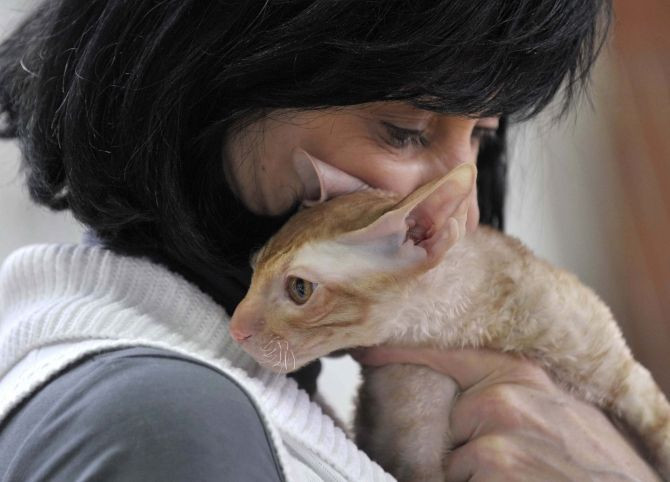Cat Litter Parasite Increases Suicide Risk Among Women

A parasite present in cat litter increase chances of women committing suicide, a new study says.
Aside from cat litter, this parasite can also infect humans who ate undercooked meat or unwashed vegetables.
"We can't say with certainty that T. gondii caused the women to try to kill themselves, but we did find a predictive association between the infection and suicide attempts later in life that warrants additional studies. We plan to continue our research into this possible connection," said Teodor T. Postolache, M.D., the senior author of the study.
For the study, researchers analyzed medical records of more than 45,000 women in Denmark who had a baby between 1992 and 1995 and whose babies were screened for the parasite. Babies don't develop antibodies to the parasites for at least three months after birth, any antibodies present against the parasite indicated that the mother was infected.
The researchers then cross-examined data available from Danish health registries to find out how many women from this group had committed suicide. They also checked Danish Psychiatric Central Register to determine if the women had any previous records of mental illness.
Study results showed that women who were infected with the parasite had a one and a half times increased chances of attempting suicide than women who weren't infected.
"… Suicide is a critically important mental health issue. About 1 million people commit suicide and another 10 million attempt suicide worldwide each year. We hope that this type of research will one day help us find ways to save many lives that now end prematurely in suicide," E. Albert Reece, dean of the University of Maryland School of Medicine.
T. gondii grows in the intestines of cats and is spread through oocysts. a cyst caused by the parasite, present in their feces. These cysts can remain in the body for a very long time without causing any symptoms. Research says that about a third of the world population is infected with the T. gondii.
According to Centers for Disease Control and Prevention (CDC), more than 60 million men, women, and children in the U.S. carry the Toxoplasma parasite. However, few show symptoms of an infection because the body's immune system keeps the parasite in check.
Doctors advise pregnant women to avoid cleaning the cat-litter box because fetuses are at increased risk of getting infected with the parasite.
"T. gondii infection is likely not a random event and it is conceivable that the results could be alternatively explained by people with psychiatric disturbances having a higher risk of becoming T. gondii infected prior to contact with the health system," Dr. Postolache says.
Researchers are now planning to see if there is any causal relationship between T. gondii infection and suicide risk.
"Is the suicide attempt a direct effect of the parasite on the function of the brain or an exaggerated immune response induced by the parasite affecting the brain? We do not know. In fact, we have not excluded reverse causality as there might be risk factors for suicidal behavior that also make people more susceptible to infection with T. gondii. If we can identify a causal relationship, we may be able to predict those at increased risk for attempting suicide and find ways to intervene and offer treatment," Dr. Postolache says.
The study was published in the journal Archives of General Psychiatry.
Published by Medicaldaily.com



























